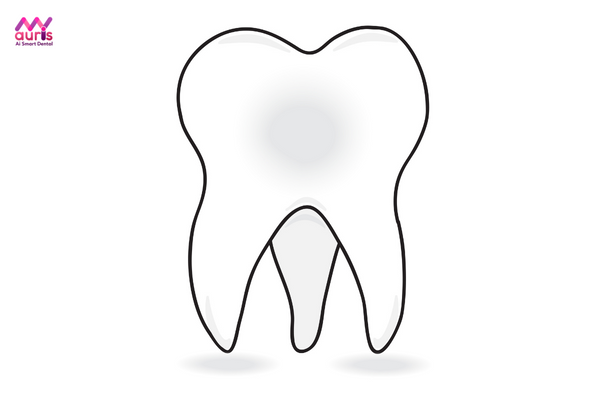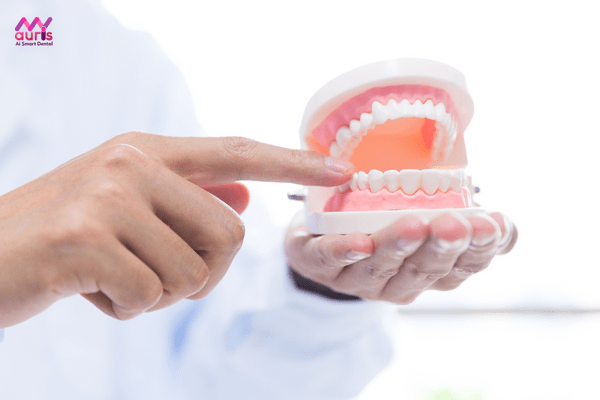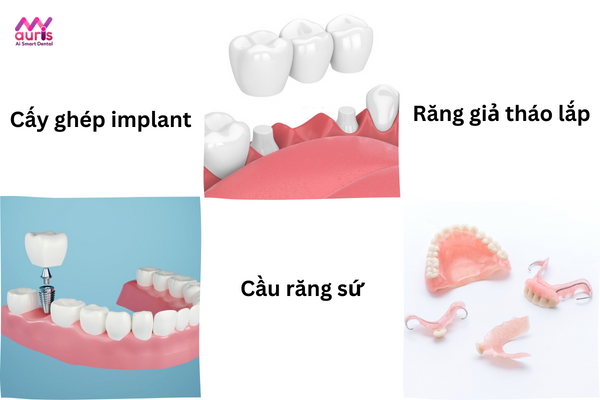The forbidden teeth are the group of teeth that perform the main function in chewing and grinding food before it reaches the stomach. Therefore, once a tooth is lost or the tooth is severely damaged and cannot be restored, it will cause many consequences for oral health as well as the body. However, people are afraid that will dental implants hurt so they hesitate, and many people don’t even do it. To answer this question more clearly, don’t skip this article.
Which tooth is the forbidden tooth?
Forbidden teeth are the group of molars, at positions 6 and 7 from the front teeth. This group of teeth is also called molars on the jaw, because the teeth have 2-3 roots and a large chewing surface, with a bulging tooth crown.
At the same time, the forbidden teeth are also the group of teeth that perform the main function in chewing and grinding food before bringing it to the stomach for digestion. Therefore, it plays an important role in each person’s health and nutrition.
Forbidden teeth begin to grow when we are between the ages of 8 and 13, and only grow once in our lives. Therefore, there is no way to replace teeth if they are damaged or lost.

Up to now, many people still confuse forbidden teeth and wisdom teeth. And this misunderstanding has led to harm to oral health. People think that wisdom teeth do not need to be maintained and have no function, so if they are damaged, they can be removed.
However, forbidden teeth and wisdom teeth are two completely different teeth in both function and position on the jaw. Wisdom teeth are the last teeth to grow on the jaw, at position 8. According to doctors, wisdom teeth may not be present, but not having wisdom teeth can cause many effects on both oral and physical health.
Therefore, from the moment teeth grow, everyone should clean and take care of them carefully.
Does implanting a forbidden tooth hurt?
Replanting a forbidden tooth is important, however, the pain of implanting a forbidden tooth depends on many factors: If the doctor’s technique is good, it will reduce the pain. Pain and complications later, especially when implants and porcelain bridges are placed, each person’s pain threshold, dental condition, care regimen – oral hygiene.

According to doctors, dental implantation will affect the tooth as well as the soft tissue of the tooth, causing more or less pain. However, before the procedure, the doctor injected anesthetics and took measures to reduce it pain before the procedure, so the patient will almost never feel any pain during the dental implant process.
However, after the anesthetic wears off, you may feel pain but it only lasts for 2-3 days, so people should not worry too much about taking the medicine and taking care of their teeth according to the doctor’s instructions Pain relief quickly.
For cases of prolonged pain, lasting up to 1 week or more, you should return to see a doctor for examination and examination.
What are the consequences of losing a forbidden tooth?
Decreased chewing force, affecting digestion and health
If one side of the forbidden tooth is lost, it means your chewing force has decreased gone and only about 70%. In cases where both sides are lost, the chewing force is extremely weak.
When losing teeth, people tend to change to the opposite direction of chewing and this causes the opposite teeth to wear out quickly and weaken Weak chewing does not ensure the food is crushed.
Once the food is not crushed before being sent to the stomach, it will cause the stomach to contract strongly, increasing activity. Over time, the stomach will also weaken and may cause stomach and digestive diseases: digestive disorders, gastritis, stomach ulcers, colitis,…
In addition, an unstable digestive system means poor absorption of nutrients. Furthermore, tooth loss also causes people to lose appetite and skip meals, all affecting the body’s health, causing the body to lack nutrients, fatigue, and weakness.

Tjawbone deterioration, premature aging, causing loss of aesthetics
At the position where the teeth are lost, if you do not work or chew regularly, the jawbone gradually disappears. Once the jawbone is destroyed, the bone density is no longer enough, the bone supporting the gums is low, leading to gum recession. At the same time, the cheeks are sunken, the skin is wrinkled, sagging, and premature aging.
Misaligned bite, misaligned jaw
The teeth are lost for a long time without being corrected, creating gaps in the jaw. Neighboring teeth tend to fall towards this planting position causing the teeth to be positioned incorrectly. At the same time, the opposing teeth may protrude or recede, leading to an unbalanced bite. More seriously, if the bite is seriously wrong, it will lead to jaw misalignment and jaw muscle paralysis.
Increased dental diseases
The gap where molars are lost when eating and drinking will easily allow food to get in. In particular, the forbidden teeth are located in a hidden position deep in the jaw and are difficult to see to clean and remove debris, food, and plaque stuck in them. Therefore, creating conditions for bacteria to grow and multiply, causing dental diseases: tooth decay, gingivitis, periodontitis,…
Forbidden tooth replanting method
To determine which method is suitable for your tooth condition, let’s refer to 3 popular dental implant methods today: implants, porcelain bridges and removable dentures
Implants
Implants are a method of restoring missing teeth using modern techniques, because Restores both the body and root of the tooth like real teeth. This method can be performed to lose one tooth or both teeth without affecting the adjacent teeth because it occurs independently.
Implants help restore almost 100% of the chewing force like real teeth, so you can chew comfortably. At the same time, with its durability, dental implants have a long lifespan, on average up to 20 years, even forever if well cared for. In addition, dental implants also bring very high aesthetics, along with good biocompatibility, are safe and benign, so they do not cause irritation, allergies, or soft tissue damage.
Ceramic dental bridge
Ceramic dental bridge is also a method of restoring lost teeth that many people choose because of its high aesthetic value. However, this method can only be applied to the case of missing tooth number 6 and cannot be applied to the case of losing tooth number 7 or both teeth 6 and 7.
Because to perform a porcelain bridge, the doctor must grind 2 adjacent teeth to make pillars to support the bridge upward. This cannot be done when people do not grow or have tooth number 8 extracted. At the same time, if there is tooth number 8, this tooth is not qualified to be an abutment to support a porcelain bridge. Because tooth number 8 often grows in the wrong position and does not grow completely.
Execute cPorcelain crowns can restore about 70% of the chewing force like real teeth, but do not last as long as dental implants.

Removable dentures
Removable dentures are a long-standing method and are often applied to cases of insufficient strength. healthy to have implants or porcelain bridges, especially the elderly. Removable dentures do not bring aesthetics and chewing ability as well as the above two methods because they only restore about 30-40% of the chewing force.
At the same time, the lifespan is not high, it quickly wears out, loosens and falls. >
Through the information about Is dental implant painful, hopefully everyone can get the answer for themselves. However, to reduce pain and complications, each person should choose a reputable dentist/hospital to have the procedure done. For more information, please contact My Auris dentistry via hotline 0906 038 017 for the most detailed advice and answers.
Anh Thy





